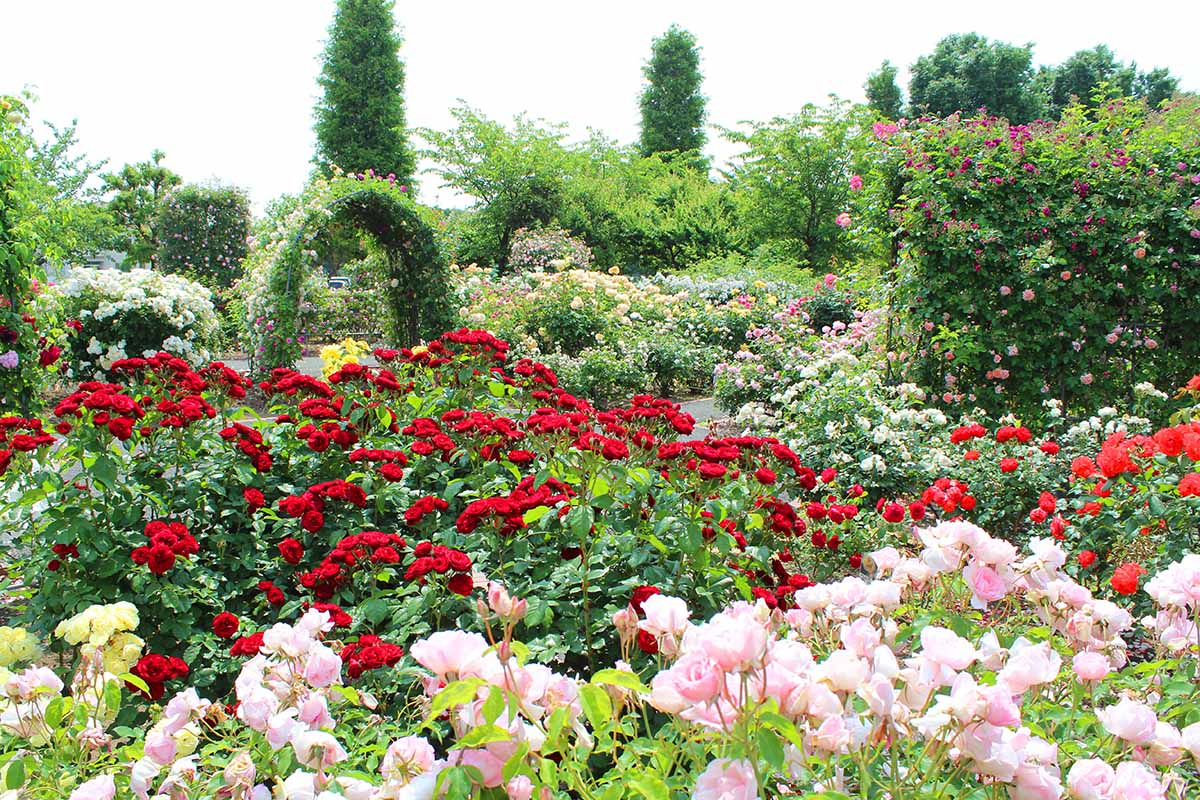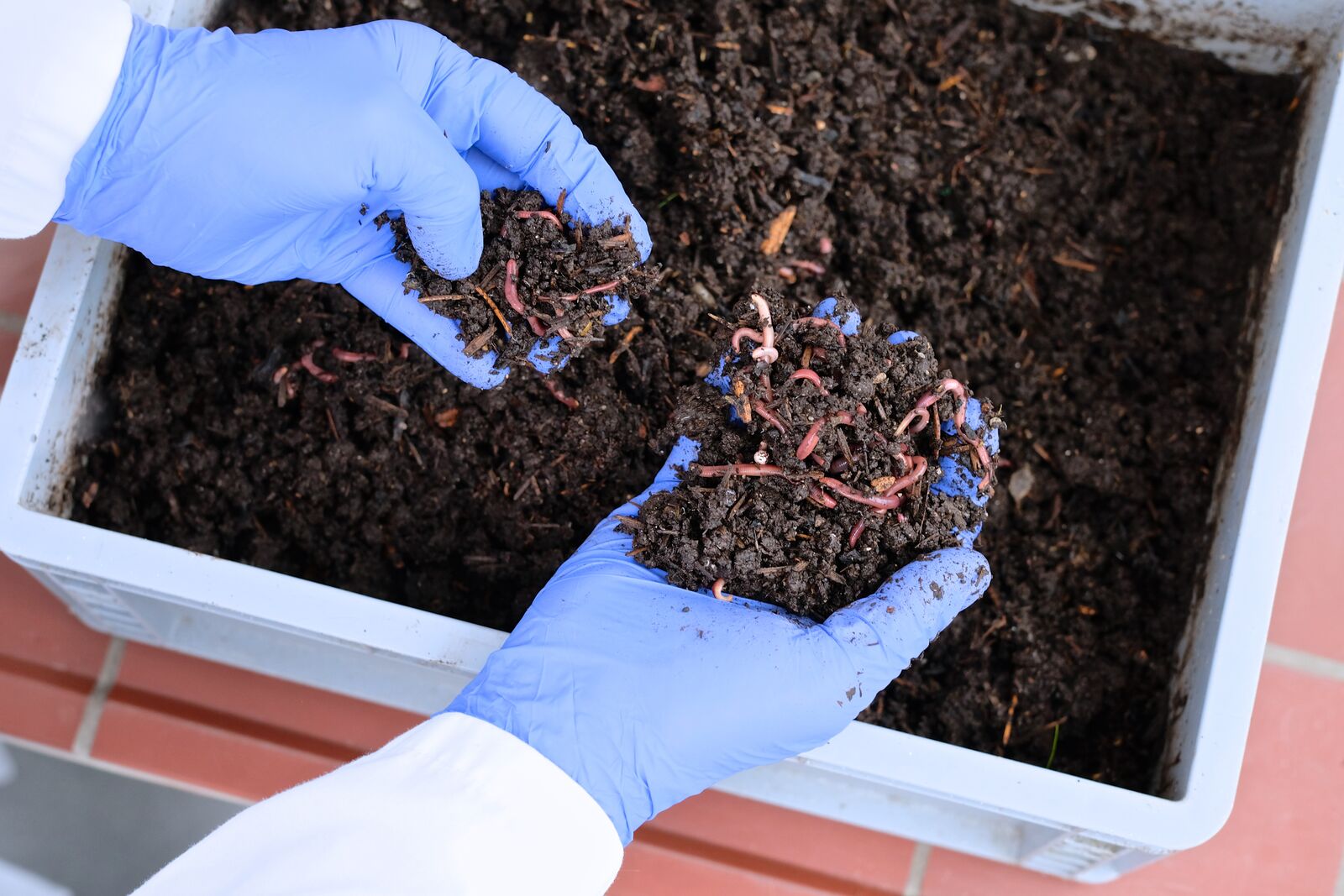How To Pick The Best Rose Fertilizer For Healthy Blooms
Find the best fertilizer for your roses with our expert tips. Learn how to choose the right nutrients and see your roses bloom beautifully.
Nov 21, 2024931 Shares155.1K Views

Did you know that the right rose fertilizer can increase blooms by up to 50%? Roses, known for their beauty and fragrance, require proper nutrients to thrive. With so many fertilizers available, choosing the right one can be overwhelming.
This guide will walk you through the process of selecting the best fertilizer for your roses, ensuring they receive everything they need to grow healthy and produce abundant blooms.
Understanding Rose Nutritional Needs
Roses need a balanced mix of nutrients to bloom efficiently.
- Nitrogen (N):Promotes healthy leaf and stem growth, giving the rose its overall structure.
- Phosphorus (P):Supports the development of strong roots and abundant blooms.
- Potassium (K):Enhances disease resistance and overall plant strength.
Gardeners who ensure their roses get these nutrients report healthier plants and more frequent blooms.
Types Of Rose Fertilizers
There are two primary types of rose fertilizers: organic and chemical.
Organic Fertilizers
These come from natural sources like manure or compost and release nutrients slowly over time, enriching the soil.
- Benefits:Organic fertilizers improve long-term soil health, are environmentally friendly, and promote sustained plant growth.
- Challenges:They release nutrients slowly, so it may take longer to see results.
Chemical Fertilizers
These are synthetic and offer a quick boost of nutrients.
- Benefits:Chemical fertilizers provide fast results and are often less expensive.
- Challenges:They can lead to soil degradation if overused, and excess chemicals may run off into nearby water sources.
When choosing between organic and chemical fertilizers, consider the long-term health of your garden.
Organic fertilizers may take longer to show results but improve the overall quality of your soil, whereas chemical fertilizers are fast-acting but may not be ideal for continuous use.
Soil Testing And Analysis
Before applying fertilizer, it’s crucial to test your soil. This ensures you know exactly what nutrients your soil lacks. Here’s a quick guide to soil testing:
- Get a soil test kit:These are available at most gardening centers.
- Collect soil samples:Gather small amounts of soil from different areas in your garden for the most accurate results.
- Analyze the results:Most tests will give you readings for pH and essential nutrients.
Roses prefer slightly acidic soil with a pH of 6.0 to 6.5. Knowing the pH will help you adjust your fertilizer choice to ensure nutrients are absorbed effectively.
Fertilization Timing And Techniques (600 Words)
Different types of roses require different fertilization methods. Here’s a breakdown based on rose type:
Newly Planted Roses
Newly planted roses benefit from balanced fertilizers, such as 10-10-10 formulations, that provide an even amount of nitrogen, phosphorus, and potassium. Fertilize in early spring to support root development.
Established Roses
For established roses, focus on a fertilizer high in phosphorus to support blooming. Fertilize every 4-6 weeks during the growing season to maintain healthy growth.
You Might Like: What Is The Best Soil For Growing Healthy Roses?
Container Roses
Roses in containers need more frequent feeding with liquid fertilizers to compensate for the limited soil nutrients. Apply liquid fertilizer every 3-4 weeks during the growing season.
Gardeners often recommend applying fertilizers early in the morning to prevent root burn, as the cooler temperatures are less stressful on plants.
Best Fertilizer For Roses
Choosing the best fertilizer depends on your roses' specific needs. Here’s a closer look at some popular options:
Granular Fertilizers
These slow-release fertilizers provide a steady supply of nutrients over time. They are ideal for gardeners who prefer low-maintenance feeding routines but should be applied with care to avoid over-fertilizing.
Liquid Fertilizers
Liquid fertilizers are fast-acting and great for giving roses an instant boost, especially for container-grown plants. However, they need to be applied more frequently, typically every 3-4 weeks.
Experts often recommend starting with a slow-release fertilizer in spring and supplementing with liquid feeds during the growing seasonfor the best results.
Common Fertilization Mistakes To Avoid
Here are some common mistakes gardeners make when fertilizing roses:
- Over-fertilizing:Too much fertilizer can cause root burn and weak growth, leading to a less vigorous plant.
- Using the wrong type of fertilizer:Organic fertilizers are slow-release, while chemical ones work faster. It’s essential to choose the right one for your garden’s needs.
- Fertilizing at the wrong time:Avoid applying fertilizers during extreme heat, as this can stress the plant.
Avoiding these mistakes is key to ensuring your roses receive the correct nutrients without harming their growth.
Seasonal Fertilization Calendar
A seasonal fertilization schedule will help you keep your roses nourished year-round.
- Spring:Start with a balanced fertilizer after pruning to support new growth.
- Summer:Continue fertilizing every 4-6 weeks to maintain bloom production.
- Fall:Use a slow-release fertilizer to prepare the plant for winter dormancy.
- Winter:Roses don’t need fertilizer during this time. Instead, focus on mulching to protect the roots.
Following this schedule ensures your roses get the nutrients they need at the right time.
Tips And Tricks For Successful Fertilization
Here are some additional tips to help ensure your roses thrive:
- Organic Tip:Add compost or aged manure in early spring to naturally enrich the soil.
- Water Before Fertilizing:Always water your roses before applying any fertilizer to prevent root burn.
- Mulch Around the Base:Mulching helps retain moisture and keeps nutrients in the soil for longer.
Encourage readers to experiment with their own fertilization methods and share their results with the gardening community.
Frequently About How To Choose The Right Rose Fertilizer
How often should I fertilize my roses?
Roses typically need to be fertilized every 4-6 weeks during the growing season, starting in early spring and continuing through summer.
What type of fertilizer is best for roses?
A balanced fertilizer, like a 10-10-10 mix, works well for most roses. Established roses may benefit from a phosphorus-rich fertilizer to encourage blooming.
Can I use organic fertilizer on my roses?
Yes, organic fertilizers are great for roses, especially if you want to improve your soil’s overall health. They release nutrients slowly, promoting sustained growth.
When should I stop fertilizing my roses?
Stop fertilizing your roses about 6-8 weeks before the first expected frost to allow the plant to prepare for dormancy.
Conclusion
Proper fertilization is essential to maintaining healthy, vibrant roses. By choosing the right type of fertilizer, applying it at the correct times, and avoiding common mistakes, you can ensure your roses thrive. Experiment with organic and chemical fertilizers, test your soil, and adjust your fertilization schedule to meet the specific needs of your roses.
Latest Articles
Popular Articles
